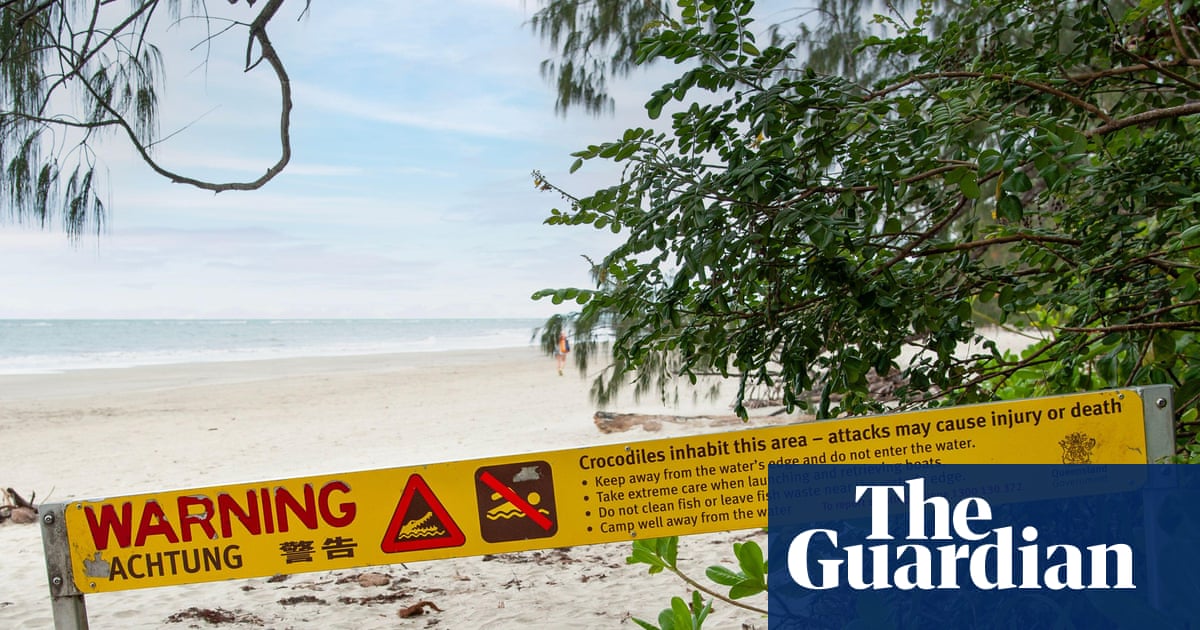A justice department memo directing the department’s civil division to target the denaturalization of US citizens around the country has opened up an new avenue for Donald Trump’s mass deportation agenda, experts say.
In the US, when a person is denaturalized, they return to the status they held before becoming a citizen. If someone was previously a permanent resident, for example, they will be classified as such again, which can open the door to deportation efforts.
The memo, published on 11 June, instructed the justice department’s civil division to “prioritize and maximally pursue denaturalization proceedings in all cases permitted by law and supported by the evidence”. Immigration matters are civil matters, meaning that immigrants – whether they are naturalized citizens or not – do not have the right to an attorney in such cases.
Muzaffar Chishti from the Migration Policy Institute, a non-partisan thinktank, explained that much of immigration law is based on discretion by government officials. To revoke a person’s citizenship, US officials must demonstrate that they are not of “good moral character” – a subjective and broad term with little defined parameters.
Now, the recent memo lists a broad range of categories of people who should be stripped of their naturalized citizenship status, providing further guidance as to who is not of good “moral character”. This includes “those with a nexus to terrorism” and espionage, war criminals and those who were found to have lied in their naturalization process. Officials still need to prove their case, Chisthi explains.
“[The administration] can’t, on their own, denaturalize people, they still have to go to a federal district court,” said Chisthi. “Denaturalization finally does belong to federal district courts – but they are obviously keen on finding every way they can to denaturalize people they think did not deserve to be naturalized.”
However, the justice department’s memo is not solely confined to those expanded categories. It gives more discretion to officials to pursue these cases, prompting a fear for analysts and attorneys that the directive by the Trump administration is overly broad.
For Jorge Loweree, director of policy for the American Immigration Council, a new category in the memo stood out to him: individuals accused of being gang and cartel members.
Loweree is concerned “because of the way that the administration has treated people that it deems to be gang members”, he said. “ It wasn’t that long ago that the administration flew hundreds of people from the US to a prison in El Salvador on, in most instances, flimsy evidence.”
Although the memo marks an escalation by the Trump administration it is not entirely news, and in recent decades, other nations have also engaged in seeking to strip citizenship from certain people.
Denaturalization in the US has a long history. Throughout the 20th century, those seen by the US government as potential enemies to US interests were stripped of their US citizenship. Journalists, activists and labor leaders, accused of being anarchists and communists, were frequently targeted.
Politically-driven denaturalization fell off in the late 1960s, when the US supreme court ruled that denaturalization could only take place if someone was found to have committed fraud or “willful misrepresentation”, as USA Today explained earlier this year, leading to a lull in denaturalization cases. Denaturalization categories were narrowed, with cases focusing mostly on former war criminals, such as Nazis, who had lied in their documents to gain status in the US.
In recent decades, starting under the Obama administration, the US government escalated its denaturalization efforts. Matthew Hoppock, an immigration attorney based in Kansas who follows and analyzes immigration policies closely, said that the Obama-era enforcement efforts were limited to specific cases. The operation, called Operation Janus, began reviewing fingerprint cards to determine whether naturalized citizens had lied during their citizenship process.
Through 2017, Hoppock, who accessed denaturalization data, found “it’s about 10 to 15 cases a year that they bring nationwide,” adding that “those were typically human rights abusers, Nazi guards, and cases like that.”
The first Trump administration marked a significant uptick in denaturalization efforts. The Department of Homeland Security at the time stood on the shoulders of the Obama-era operation, supercharging it to strip citizenship from people accused of cheating in the process of applying for citizenship as a foreign-born individual. The administration’s goal at the time was to examine 700,000 files but, as Hoppock states, due to the high cost and time-consuming nature of the cases, the administration barely made a dent.
But as Chisthi further explains, much about the first Trump administration’s anti-immigration agenda was only a “dress rehearsal” for policies being pursued this year. Now, under the second Trump administration, denaturalizing people has risen up the priority list.
Meanwhile, the terrorist attacks on the US on September 11, 2001 radically changed how many countries dealt with national security efforts and other countries also began to explore the denaturalization of certain people.
According to research from the analysis organization Global Citizenship Observatory, or Globalcit, based in Italy, and the Institute of Statelessness and Inclusion (ISI), based in the Netherlands, between 2000 and 2020, citizenship revocation expanded dramatically in some countries, especially in Europe, and especially for minority groups. During this period, 18 countries in Europe, researchers found, expanded their denaturalization powers in the name of national security and counter-terrorism.
A report from the European University Institute’s Global Citizenship Observatory, published this year, highlighted certain countries with broad and ambiguous denaturalization laws. In Bulgaria, for example, a person’s citizenship could be stripped for “serious crimes against the country.” And in Vietnam, acts that “harm the country’s prestige” are also grounds for revocation.
There have been recent shifts in certain countries, related to denaturalization cases. In Latvia, citizenship can be revoked if the person serves in the security or armed forces of another country. However, in 2022, amid the war caused by Russia’s invasion of Ukraine, an exception was introduced to allow Latvians to fight for Ukraine.
Just this year, the report says, the Swedish government recommended a constitutional shift that could revoke a person’s citizenship due to “threatening national security.” In Germany, some political parties discussed the push to revoke citizenship for “supporters of terrorism, antisemites, and extremists.” And Hungary introduced a constitutional amendment to allow the temporary suspension of citizenship on “security grounds.”
As the European University Institute’s report highlighted, last year, Kuwait introduced amendments that would revoke citizenship of people who were involved in fraudulent conduct, crimes involving “moral turpitude” or where the state’s interests are deemed at risk. Over 42,000 people reportedly lost their citizenship, the report says.
“We’ve seen dictators use the taking-away-of-citizenship as a way to control a population or bend people to their will,” Hoppock said. “I don’t know if the Trump administration is going to use it this way. This memo is pretty milquetoast – it just says we don’t really have any priorities any more.”
But, Hoppock added, the new memo is a huge departure from past efforts. “Unfortunately it could be abused by a system that likes to go after its adversaries,” he said.
All experts told the Guardian that resources will be a major factor in the Trump administration’s push to revoke some people’s citizenship. Already, the federal government’s resources are stretched thin, for a variety of reasons.
“The most important thing is: How much resources is the administration going to put into it, to target prosecutions?” Chisthi asks. “And that will determine whether this will mostly be an exercise in getting a lot of people anxious or actually producing outcomes of denaturalizations.”
Loweree is wary.
“Resource constraints would be a significant limiting factor in this type of thing,” he said. “But we have seen the administration do anything and everything it can to pursue its immigration agenda, in all instances,” he said.

 3 months ago
51
3 months ago
51

















































